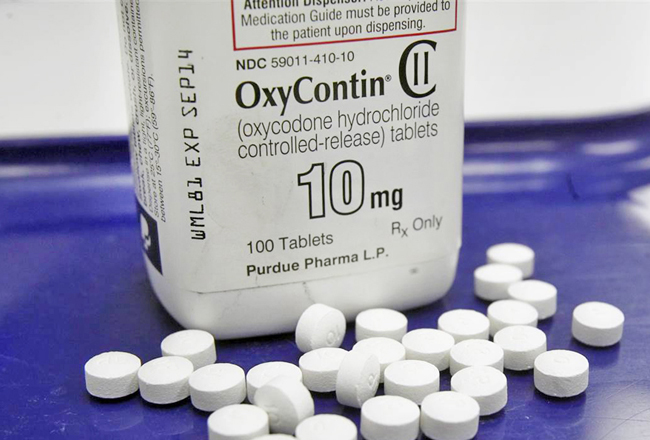Amidst OxyContin lawsuits, Purdue Pharma unveils trial for wearable tech for chronic pain
Amidst a growing number of lawsuits filed against it for its marketing practices of OxyContin, Purdue Pharma has announced that the first patient has been enrolled in its study, “Effect of Wearable Health Technology on the Treatment of Patients with Chronic Pain at Geisinger.”
 The study by the Stamford drug maker and Geisinger ”“ an integrated health services organization that serves more than 3 million residents throughout 45 counties in Pennsylvania, and in southern New Jersey ”“ is designed to demonstrate how the use of wearable health technology by chronic pain patients treated at a specialty clinic may improve both patient and health care system outcomes.
The study by the Stamford drug maker and Geisinger ”“ an integrated health services organization that serves more than 3 million residents throughout 45 counties in Pennsylvania, and in southern New Jersey ”“ is designed to demonstrate how the use of wearable health technology by chronic pain patients treated at a specialty clinic may improve both patient and health care system outcomes.
The trial will assess the effect of the addition of wearable health technology on approximately 240 multidisciplinary pain-program patients being treated in the Geisinger system.
The wearable health technology includes an Apple Watch that will measure physical activity, patient-reported pain, disability, sleep quality, depression, medication use and heart rate, and will guide the patient toward nonpharmaceutical treatment alternatives such as stretching, mindfulness and thermotherapy.
The Apple Watch will include a pain app developed for this study, a health care provider dashboard and will integrate with Geisinger”™s electronic medical record.
“The goal of this technology is to improve patient function and quality of life while reducing the need for analgesic medications,” said Tracy Mayne, head of Medical Affairs Strategic Research at Purdue Pharma. “It provides objective measures of numerous aspects of pain, function and treatment effectiveness so that information can be gathered for the patient and the healthcare provider in between visits.”
The 12-month study will enroll 240 consenting chronic pain patients ages 18 to 75 admitted to Geisinger”™s Multiple Pain Program from Oct. 5 to Oct. 5, 2018.
The news comes following a lawsuit filed by the district attorneys general for five judicial districts in the eastern portion of Tennessee, which alleges Purdue Pharma aggressively marketed its product on the region through a sustained marketing campaign that downplayed the risks of addiction. Purdue and other opioid manufacturers have been the subject of similar lawsuits filed over the past several months.
Purdue has repeatedly denied any wrongdoing and has said it is working with law enforcement and other groups to curb the opioid crisis.
Data from the National Institute on Drug Abuse released Sept. 7 found that drug overdoses are now the leading cause of accidental death for Americans under 50, and predicted that the addiction epidemic will result in an estimated 71,600 deaths this year.
Meanwhile, Milford-based Cigna has announced it will no longer cover OxyContin as a preferred option on its commercial drug lists, effective Jan. 1. Patients who have started using OxyContin for hospice care or cancer treatments will continue to have the medication covered in 2018. As with other medications that are not on covered drug lists, Cigna said it will consider approving coverage for OxyContin if a customer’s doctor feels that treatment using OxyContin is medically necessary.